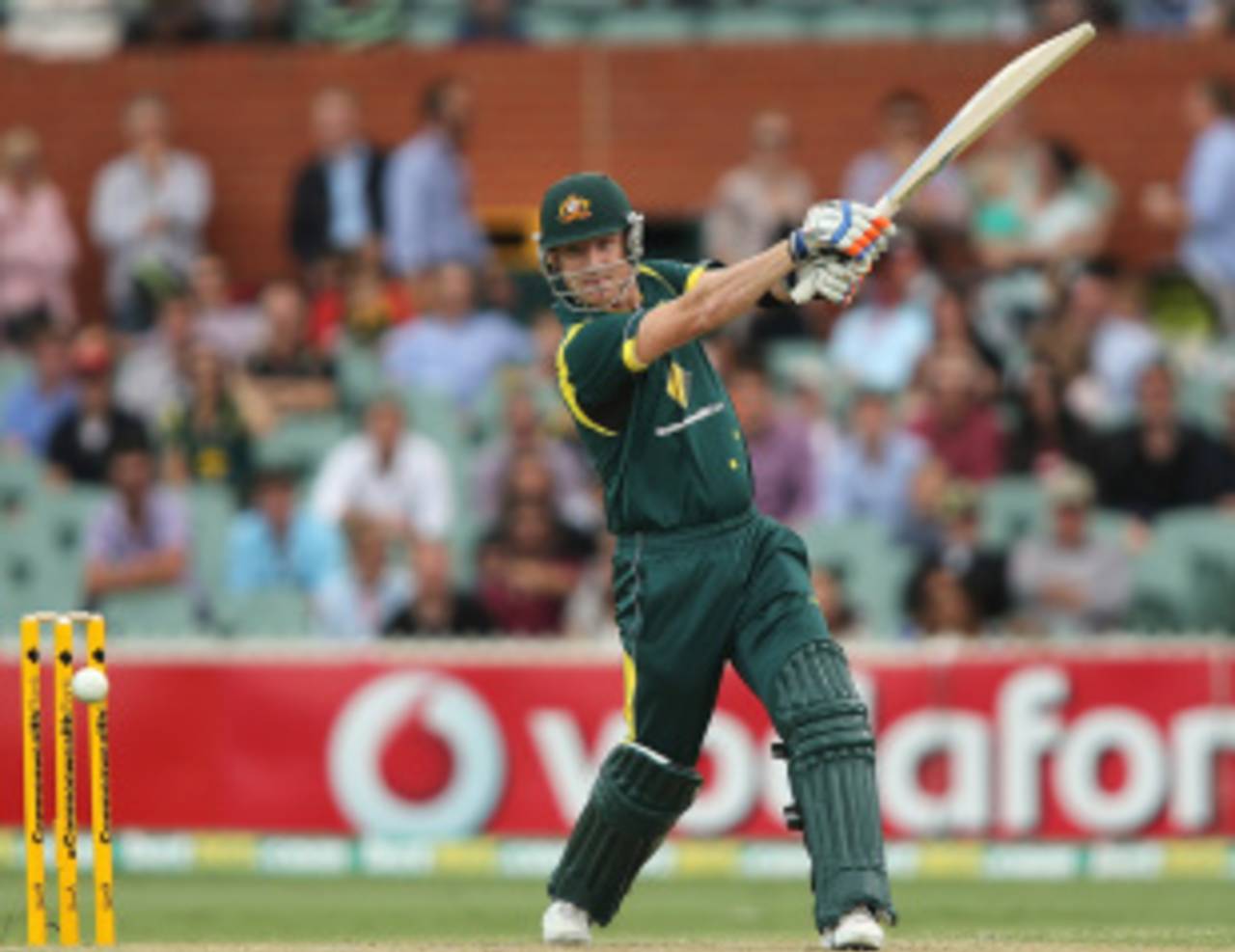Australia's coach Mickey Arthur has rounded on critics of the national team's management of fast bowlers, taking particularly sharp aim at the contention that the selection panel is letting sports science make its decisions regarding who to choose.
In a prolonged rebuttal of public and media views that there is confusion if not chaos around Australian team selection, Arthur revealed that a major factor behind Mitchell Starc's withdrawal from the Boxing Day Test team was to avoid the flaring of a long-term ankle problem that will eventually require surgery and an extended lay-off from the game.
He also confirmed that Michael Clarke, Matthew Wade and David Warner would return to the ODI team for the second phase of matches in Brisbane and Sydney on Friday and Sunday, and clarified that Usman Khawaja was dropped for Steve Smith under a pre-defined plan to give each batsman one game. Australia have been widely criticised by former players and sections of the public for fielding a "B-team" in the first two matches of the series, but Arthur went to considerable lengths to explain the intricacies of selection.
"We're very clear on who the best team is and who the best attack is," Arthur said following Australia's defeat in the second ODI in Adelaide. "I've been really annoyed and frustrated by some of the articles that have been going around. For me it's common sense. Common sense prevails when we pick teams. We certainly don't pick teams not to win any cricket games for Australia. Every time we pick a team we're giving guys opportunities and picking what we think is the best side possible to go out and do the job and win.
"It's either very naive or just a little bit stubborn that people don't understand what we're doing. The example I've used is Black Caviar. When he runs a horse race, if they don't feel he's 100% right they don't release him. We've done that with our bowlers, and over the year we've had three examples of quick bowlers basically rested, and that is all.
"Ryan Harris in the West Indies, Mitchell Starc on Boxing Day and Peter Siddle at Perth. That's the only time we have rested quick bowlers, and we've done that simply because we think they're at risk. We want to play our guys all the time. With the amount of cricket we play these day's it is impossible to keep the guys on the park in every single game. So we would not have a quick bowler at risk."
Starc's absence from the Boxing Day Test team was a particular sore point, Starc himself stating his frustration at not being allowed to follow-up his match-clinching five wickets on the final day of the Hobart Test by playing on the biggest day of the Australian cricket calendar. But Arthur made it clear that there were more factors at play than a simple question of Starc's workload.
"If you take Mitchell Starc over the Boxing Day Test match, the information we'd got was that he was at risk. Then it's up to us," Arthur said. "The constant thought that sports scientists are picking the team is so far off the mark that it's frightening. They give us information, the information is then left up to us to make that decision. Michael, myself and the selector on duty make the decision based on the information we're given. When we get that information we will see if it holds up and if we think it's not worth the risk.
"Mitchell Starc plays three forms of the game. He had an ankle impingement, he's got spurs that are going to require an operation at some stage. We're hoping that will be a year down the line, but at some stage that is going to give in. There was no point in us playing him in a Boxing Day Test match and risk losing him for the one-day series and then for a tour of India. That would've been plain stupid."
Australia are facing one of the most demanding schedules ever set before an international team in 2013, with a four-Test tour of India to be followed by the Champions Trophy and then 10 consecutive Ashes Test matches in England and Australia. Arthur said the decisions made to withdraw fast bowlers or other players from the firing line for set periods reflected the calendar ahead.
"The constant thought that sports scientists are picking the team is so far off the mark that it's frightening. They give us information, the information is then left up to us to make that decision."
Mickey Arthur
"Whenever we make those decisions, we make those decisions with a lot of thought into how we're going to use our quick bowler and when we're going to use him," Arthur said. "I really want to get that out and put that on record, because I'm sick and tired of talking about it, and I'm certainly sick and tired of seeing some of the articles that are going around in the media at the moment."
A hamstring strain to Brad Haddin, meanwhile, has simplified the circumstances of Wade's return to the squad as the national selectors prepare to strengthen their team for the next brace of matches in Brisbane and Sydney. That injury may now cause the selectors something of a headache should they still want to take Haddin on the India Test tour in early February. But for now it will allow Wade to return swiftly and smoothly to the ODI squad alongside other members of the Test team that were given a week's rest following their exertions against South Africa and Sri Lanka.
Daniel Brettig is an assistant editor at ESPNcricinfo. He tweets here
